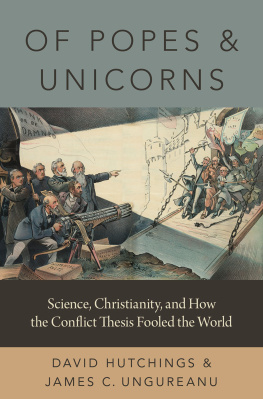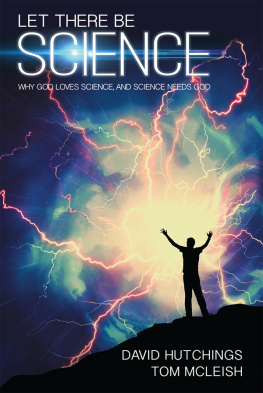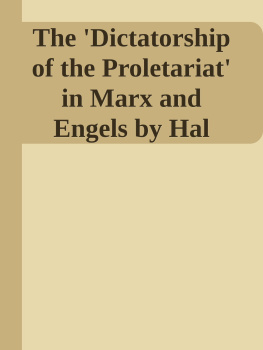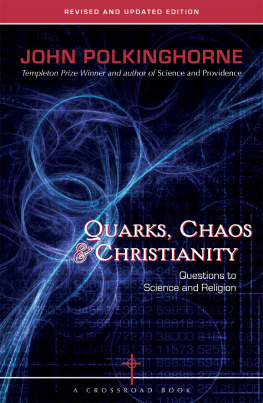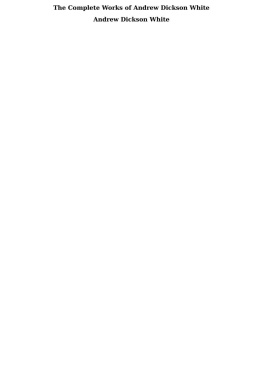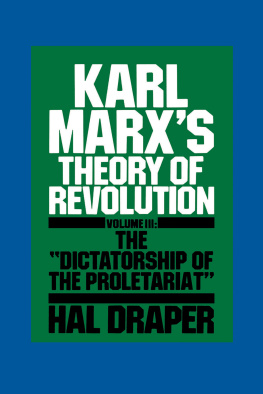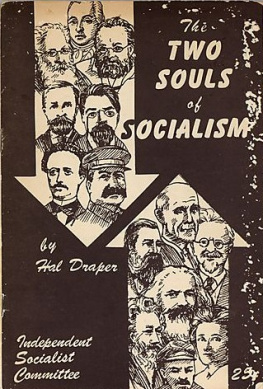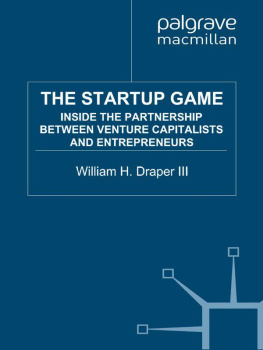Of Popes and Unicorns

Oxford University Press is a department of the University of Oxford. It furthers the Universitys objective of excellence in research, scholarship, and education by publishing worldwide. Oxford is a registered trade mark of Oxford University Press in the UK and certain other countries.
Published in the United States of America by Oxford University Press
198 Madison Avenue, New York, NY 10016, United States of America.
David Hutchings and James C. Ungureanu 2022
All rights reserved. No part of this publication may be reproduced, stored in a retrieval system, or transmitted, in any form or by any means, without the prior permission in writing of Oxford University Press, or as expressly permitted by law, by license, or under terms agreed with the appropriate reproduction rights organization. Inquiries concerning reproduction outside the scope of the above should be sent to the Rights Department, Oxford University Press, at the address above.
You must not circulate this work in any other form and you must impose this same condition on any acquirer.
Library of Congress Cataloging-in-Publication Data
Names: Hutchings, David, 1981- author. | Ungureanu, James C., author.
Title: Of popes and unicorns : science, christianity, and how the conflict thesis
fooled the world / David Hutchings and James C. Ungureanu.
Description: New York, NY : Oxford University Press, [2022] |
Includes bibliographical references and index.
Identifiers: LCCN 2021017430 (print) | LCCN 2021017431 (ebook) |
ISBN 9780190053093 (hardback) | ISBN 9780190053116 (epub)
Subjects: LCSH: Religion and scienceHistory19th century. |
Intellectual lifeHistory19th century. | Draper, John William, 18111882.
History of the conflict between religion and science. | White, Andrew Dickson,
18321918. History of the warfare of science with theology in
Christendom. | Intellectual lifeReligious aspectsChristianity. |
Truthfulness and falsehood.
Classification: LCC BL245 .H88 2021 (print) | LCC BL245 (ebook) |
DDC 201/.65dc23
LC record available at https://lccn.loc.gov/2021017430
LC ebook record available at https://lccn.loc.gov/2021017431
DOI: 10.1093/oso/9780190053093.001.0001
For Chloe, who always wants to see the actual evidence
SDG
Contents
Many people have supported me, encouraged me, advised me, and managed not to get fed up with me (I hope!) during the writing of this book. In particular, James has been a joy and a blessing to work with, and he has kept me on the straight and narrow throughout. Danny Ratcliffes illustrations are excellent. Martin Steel, Danny Byrne, and Angie Edwards have worked through more drafts than it is worth mentioning; their wise words have been a great help. Tom McLeish inspired me to keep going when there were some early setbacks with the project. My parents, Ian and Lynne, have read every paragraph, maintaining a loving faithfulness that they have shown to me my whole life. My precious daughters, Bethany and Chloe, have been a constant reminder of why the truth mattersmay they grow up around it and treasure it. And my wife, Emma, is the perfect teammate through it allthank you, for everything.
D. Hutchings
Im grateful to David for taking up this project. Scholars have the tendency of only speaking to each other. But David has shown us that we do this at our own peril. As a secondary school physics teacher, he takes the work of scholars and translates it for readers outside of the academy. Working with him on this book has served as a reminder of how important that task really is. The conflict thesis remains alive and well because not only have historians of science and religion misunderstood its origins, development, and popularization but we have failed to speak to that larger audience. So Im grateful not only for the energy and enthusiasm of his writing but more importantly for the empathy and concern he has shown toward our readers.
J. C. Ungureanu
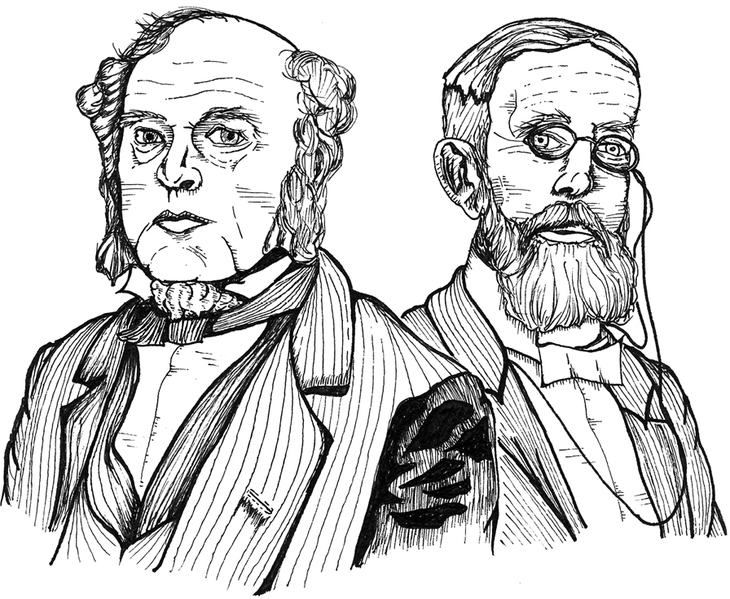
Kaysings Case The Truth About Lies The Last of the Polymaths Conflict A Brave Man, Wronged Warfare The Ultimate Double Act Making Myths A Legacy of Lies Harmful in Itself A Twist in the Tale Of Popes and Unicorns
Kaysings Case
Bill Kaysing, like 500 million others, was glued to his TV screen. Unlike them, however, he was not being transported to a state of otherworldly wonder by what he was seeing. Instead, he was positively fuming. As far he was concerned, what was happening right now in front of a billion trusting eyes was nothing other than an outright betrayal of humanity. NASA was taking everyone for fools. Unabashed, on live television worldwide, they were faking the moon landings.
And he wasnt going to let them get away with it.
***
After copious amounts of research, he had produced what the world really needed: a definitive and watertight account of what had truly transpired in and around July 20, 1969.
Long before that fateful date, he explained, NASAunder pressure from the government, the Russians, and even its own overconfident spinhad realized it was in big, big trouble. Its promise to land astronauts on the lunar surface by the turn of the decade had proved far more difficult to achieve than anyone had originally envisaged. Worried, embarrassed, and trapped in a corner, the big bosses had realized they had no other choicethey were simply going to have to pretend to do it.
It is tempting to assume that We Never Went is just paranoid nonsense, but that is far too simplistic a response. Kaysing was no small-town, establishment-hating, tin hatwearing nutcase ranting at authority from the outside inno, he had worked for Rocketdyne, the company that built the engines for NASAs Saturn V rockets. He had enjoyed regular firsthand access to sensitive documents about the Apollo missions. He knew many of the engineers personally. And, whats more, he knew how to build a good case.
Firstly, he pointed out, pretty much all of the internal experiments, trials, and simulations had been disastrous: it was not uncommon for the errors to run into the tens of thousands per test. Indeed, he happened to know that the odds of a successful trip had been calculated in-house as just 1 in 60,000and yet here was NASA, the new darling of the American populace, now claiming to have completed two of them, entirely untroubled, in a row.
Secondly, the photographic evidence on offer was highly suspect. Stars were missing; shadows pointed in the wrong direction; video was unjustifiably grainy; moondust was mysteriously undisturbed. If this was supposed to be proof, it left much to be desired.
Thirdly, Kaysing also noted that the astronauts involved with Apollo only ever seemed to end up in one of two states: rich or dead. In his own words, some arrived back to Earth and were suddenly appointed as executives in large corporations; others died before their missions in suspicious accidents. Could it be that those who played along were rewarded, while those who refused were unceremoniously bumped off?
His arguments went on: diplomatically, the United States needed to overtake the Soviets in the space race; the previously unclassified Apollo documentation had been suddenly rendered unavailable to the public; NASA had covered up multiple rocketeering disasters in the past; the moon footage bore more than a passing resemblance to

